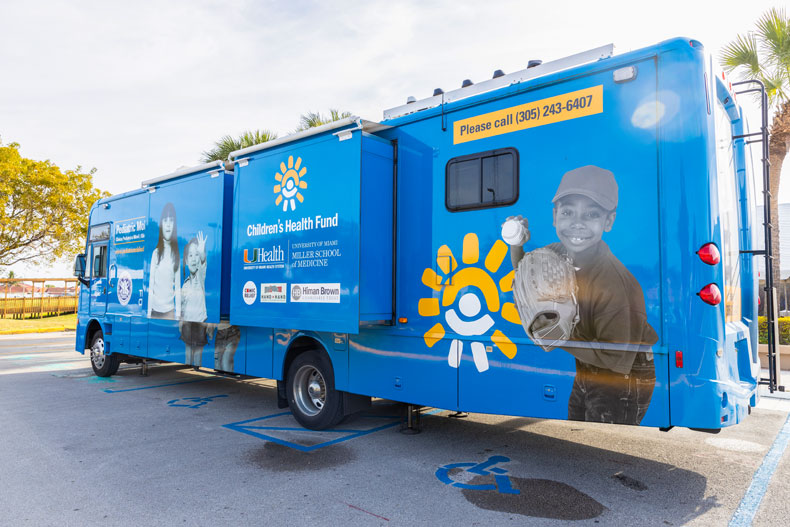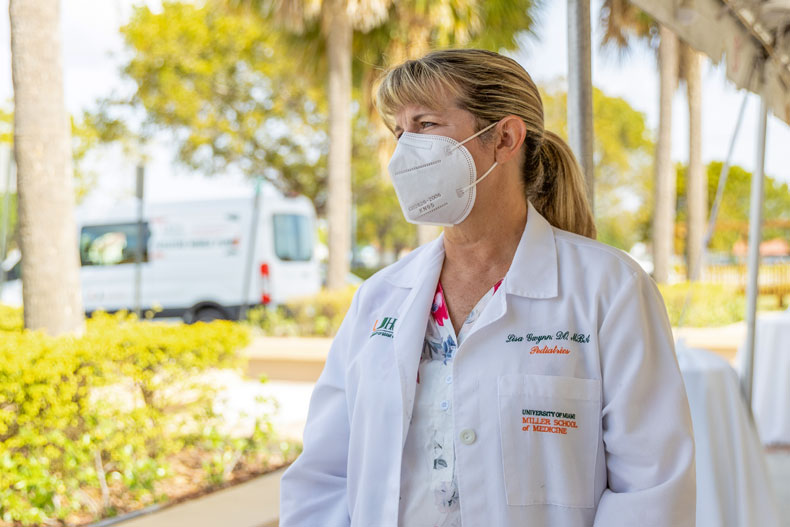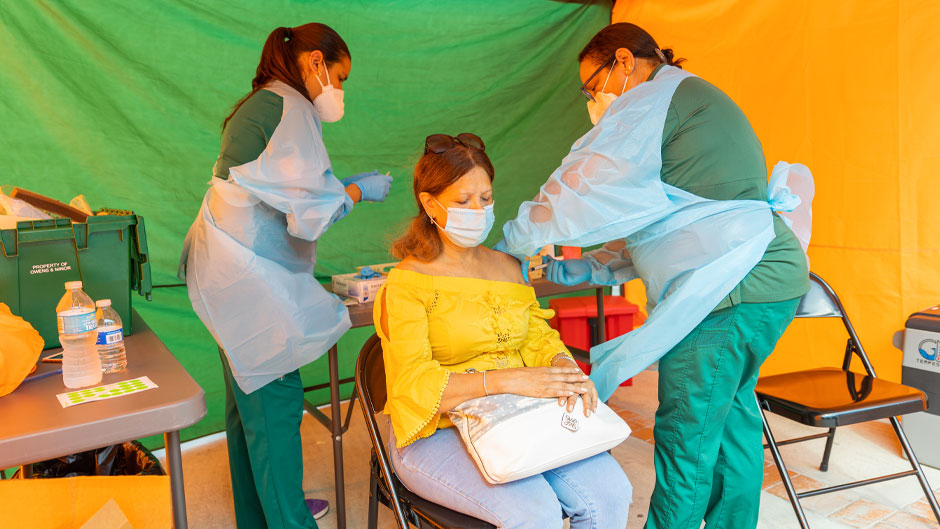Armed with supplies from the state, the University of Miami Health System’s Pediatric Mobile Clinic is visiting some of Miami-Dade’s neediest communities to deliver COVID-19 vaccines.
“We have to be part of the solution to getting this pandemic behind us,” said Dr. Lisa Gwynn, medical director for the Pediatric Mobile Clinic, as well as interim chief of the Division of General Pediatrics at the Miller School of Medicine. “We hope to make this a part of what we do and to offer what we have in these communities long-term.”
At least twice a week, and on some Saturdays, the mobile clinic is now offering COVID-19 vaccines to underserved populations in Little Haiti, Hialeah, Florida City, and Homestead at churches, schools, or community health centers, said Gwynn. For the most part, these are locations the mobile clinic already visits to deliver medical care and annual vaccinations to uninsured children. Now that they have COVID-19 vaccines, however, Gwynn’s staff is working with these partner sites to let families know they will be in the area beforehand. So, adults can make appointments for the inoculations.

In just the past three weeks, the mobile clinic has distributed 414 of the Johnson & Johnson vaccines that were supplied by the Florida Division of Emergency Management and Department of Health among four different community sites, according to Gwynn. Although they are given small allotments now, this could change in the future, she noted.
Some Hialeah residents who received the vaccine this week said they were relieved to be inoculated. While some felt they had to get vaccinated for work, others wanted it for their own safety.
“I’ve stopped traveling for work and vacations because I have been afraid of getting sick, so I wanted to get protected,” said Joaquina Mejía. “I feel like I will have a little more freedom to do things now.”
The entire operation began about three weeks ago, when Erin Kobetz, the University’s vice provost of research and scholarship, as well as associate director of population science and cancer disparities at Sylvester Comprehensive Cancer Center, was contacted by Florida’s Division of Emergency Management. State leaders were familiar with Sylvester’s success in using the Game Changer mobile clinic to perform cancer screenings and asked if she could use it to distribute COVID-19 vaccines. Although she was receptive, Kobetz had a better idea. She knew the staff on the Pediatric Mobile Clinic was better trained in delivering vaccines, so she reached out to them to offer the COVID-19 shots.

Gwynn agreed right away. The Pediatric Mobile Clinic provides medical care to nearly 3,000 uninsured children in Miami-Dade County annually and distributes more than 10,000 school-required vaccines each year to any child who needs them. A separate operation also coordinated through the mobile clinic is now offering COVID-19 testing for children at public schools. The relationships that Gwynn and her staff have cultivated within the community, as well as their expertise with inoculations, made it an ideal way to reach the underserved.
Both Kobetz and Gwynn hope that this new effort will only ramp up with time.
“We have long established relationships in these communities and are out there providing health education, care, and prevention already. So, adding the vaccine to our arsenal can only help close the gap for our medically underserved and minority communities who may not have access to the existing vaccination venues,” Kobetz said.
Besides the benefits to their network of families, Gwynn believes that this will also help the Pediatric Mobile Clinic prepare for the next year.
“I know that in the very near future, kids will become eligible for COVID-19 vaccines,” said Gwynn, who is also an associate professor of clinical pediatrics and public health sciences and president of the Florida chapter of the American Academy of Pediatrics. “With this effort, we can refine our processes and get things up and running well before that happens.”

